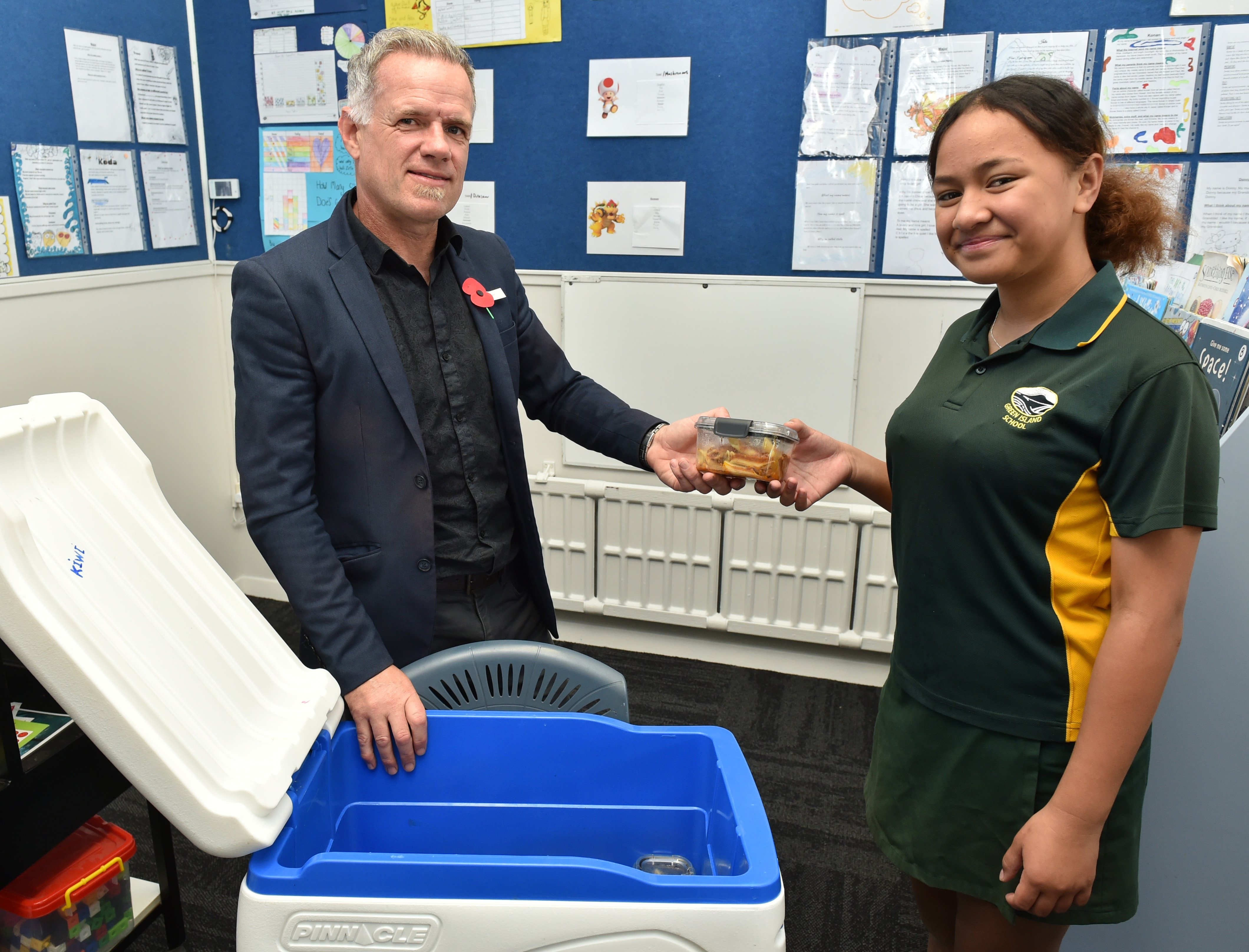Dunedin principals are concerned about the future of the healthy lunches in schools programme after leaked documents revealed proposed cuts to it in a Ministry of Education restructure.
Last week, a document leaked to RNZ showed which divisions would face the brunt of the nearly 600 proposed job cuts to the ministry.
A division with 705 positions, Te Pae Aronui proposed cutting more than 200 roles trimming down to a total of 489 staff — saving $19 million per year.
The disestablished roles included people who helped schools with the free school lunches programme, Ka ora ka ako, including seven nutritionists or nutrition advisers and one food safety adviser.

Green Island School began using the programme at the start of this year and 97% of its pupils are part of it.
Principal Aaron Warrington said the proposed cuts raised concerns for the future of the programme.
He had thought Associate Minister for Education David Seymour would try to target the programme towards those who were more in need, but that would take away from the mana of people.
"If you’re going to single kids out, we live in a society where that will bring shame to people, so they will lose mana ... then you’ll get people that won’t want to have that healthy school lunch."
Some families in the "squeezed middle" were saving about $100 a week because of the programme.
The school was delivered lunches by Time 4 Lunch at 1.10pm and everyone would sit and share the same meal at the same time, Mr Warrington said.
Some of the school’s pupils interviewed each other as part of a class project and had been sending letters to the government asking to keep the school lunches.
"It’s not good if they leave because they are better than my lunches from home ... they fill people up that don’t have food," pupil Zafrina Peacock, 10, said.

Principal Steve Turnbull said he had noticed school attendance had improved as a result of the programme.
"If we want to improve school attendance, this is a backwards step to get rid of lunches.
"We will have families where some students won’t come to school because of a lack of lunch."
He also didn’t want the programme targeted towards people from poorer backgrounds and remembered from his time teaching in England the stigma experienced by pupils who received free lunches.
It was a worry the ministry was considering making cuts to the number of nutritionists employed, he said.
"The quality of the lunches was really good ... but with less nutritionists, it is worrying."
Advertisement













